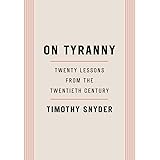




Download the free Kindle app and start reading Kindle books instantly on your smartphone, tablet, or computer - no Kindle device required.
Read instantly on your browser with Kindle for Web.
Using your mobile phone camera - scan the code below and download the Kindle app.

Follow the author
OK
The Birth Dearth: What Happens When People in Free Countries Don't Have Enough Babies? Hardcover – Unabridged, June 1, 1988
- Print length192 pages
- LanguageEnglish
- PublisherPharos Books
- Publication dateJune 1, 1988
- ISBN-100886873045
- ISBN-13978-0886873042
The Amazon Book Review
Book recommendations, author interviews, editors' picks, and more. Read it now.
Similar items that may deliver to you quickly
Product details
- Publisher : Pharos Books; First Edition (June 1, 1988)
- Language : English
- Hardcover : 192 pages
- ISBN-10 : 0886873045
- ISBN-13 : 978-0886873042
- Item Weight : 3.53 ounces
- Best Sellers Rank: #2,228,198 in Books (See Top 100 in Books)
- #562 in Demography Studies
- Customer Reviews:
About the author

Discover more of the author’s books, see similar authors, read author blogs and more
Customer reviews
Customer Reviews, including Product Star Ratings help customers to learn more about the product and decide whether it is the right product for them.
To calculate the overall star rating and percentage breakdown by star, we don’t use a simple average. Instead, our system considers things like how recent a review is and if the reviewer bought the item on Amazon. It also analyzed reviews to verify trustworthiness.
Learn more how customers reviews work on Amazon-
Top reviews
Top reviews from the United States
There was a problem filtering reviews right now. Please try again later.
Despite the increase in earth's population, the worldwide fertility rate continues to drop and is trending very close to the replacement rate. (The current differential is less than 0.3 children per couple and is shrinking.) Once the worldwide fertility rate reaches the replacement rate the inevitable long-term outcome will be a stable worldwide population. And should the fertility rate drop below replacement the inevitable outcome will be a drop in worldwide population. For decades now the fertility rate in all the Western European countries (as well as Japan) has been below the replacement rate of 2.1 children per couple (which is the replacement rate for the most developed nations). The fertility rate of Italy dropped as low as 1.1 before rebounding slightly to close to 1.3. Even in the United States, which has historically experienced a somewhat higher fertility rate, its fertility rate has now dropped slightly below replacement (at just about 2.05). As the least developed countries become less dependent on traditional agriculture, as healthcare improves in these countries, and as the shift from rural to urban areas continues, their fertility rate (which is currently responsible for keeping the worldwide rate above replacement) will also drop.
But perhaps the larger population that we will experience in the short run (which will take place because the rather large cohort of younger people in the less developed nations will still have an effect) will have a deleterious impact on our non-renewal resources, as another reviewer opines. This is a common argument for population control. It ignores several realities. The first is the one pointed out by Julian Simon in "The Ultimate Resource" and it is that people represent brain power and people find ways of using the stuff of planet earth in new and creative ways. There is no such thing as a resource per se. Something becomes a resource only when someone figures out a use for it. Should we run short of one or another resource, human ingenuity will find a way to replace that resource with something else. The second reality is that we currently have a superabundance of many nonrenewable resources. It's just that some of the supplies of these resources are not found in readily-accessible forms and are therefore not economically feasible to extract. Once again, human ingenuity comes into play. Witness the invention of hydraulic fracturing (fracking), which has provided a way of releasing the natural gas and oil found in shale deposits, a procedure that at one time was thought to be far too expensive but has since become an economical way of making available huge quantities of these resources.
So, what should we expect world population to do in the near future? According to all the variant projections given by the United Nations, population growth will slow during the first half of the twenty-first century. According to the low variant, population growth will level off by 2040 and will decrease slightly the remainder of the century. If this leveling off is going to take place in any case, what is the benefit of taking steps to limit population growth, when so doing might simply exacerbate the problems that are already facing the more developed countries due to the birth dearth in those countries?
One need not agree with all of Wattenberg's specific proposals (I for one would find some of them less than desirable) without disagreeing with the fundamental point that low fertility rates are more alarming than is the increase in earth's population that is still taking place but that will soon be leveling off.
Wattenberg comes across as nearly hysterical when he discovered the Baby Boom generation of 1946-1964 did not on average have nearly the babies their parents did. Remember, this book was written in the late 1980s, when the Baby Boomers were still having kids, if they wanted them. However, fewer women, thanks to increased opportunities in the labor market and more education, were opting to have more than one or two children, and many others did not bother to have children at all or even marry at all, the latter two choices Wattenberg thought made women "miserable," which was his opinion and certainly not remotely a fact. Lots and lots of women were and are happy without marriage or children and have no regrets. This lies at the heart of his hysteria over declining (white) birthrates in the West. The wrong kind of women--upper middle class and wealthy and of course white--were not having enough babies to prevent a "disaster" for American society as well as western Europe and Japan. He talked about the disaster for the economy with fewer workers and consumers, a disaster for the SS and Medicare systems with fewer workers, a disaster especially for the fight against the (now-defunct) Soviet Union and Eastern Europe, a disaster for national security, and a disaster for our military with fewer people to be used as cannon fodder.
He proposed all kinds of solutions at the end of the book to "encourage" (coerce) women to have at least 3 or 4 children by further penalizing those who didn't have children at all or fewer via tax laws and even more bennies than already existed for families. One outrageous proposal was his advocating further impoverishing those without children, including single individuals, by cutting their Social Security benefits in order to provide more bennies for those who had children. He totally ignored the simple fact the poorest segment of aging Americans are never-married women. He probably didn't even know that when he wrote this awful book. I doubt he would have cared since these women should have found husbands, which is no solution at all. Instead, he wanted to push marriage, even remarriage bennies which he personally would have benefited from when his first wife died. He did have another child with his second wife in addition to the three he had with the first.
The book is sexist despite his claiming his pro-natal recommendations being "feminist," it is extremely xenophobic with full-on bigotry against Third World countries, the anti-communist rhetoric extremely dated, and the racism not-so-subtle. The book is said to have laid at least some of the groundwork for the current antiabortion efforts in the U.S. Wattenberg thought as a "middle ground" between the two sides on abortion that adoption should be encouraged, for if only about five percent of (white) women with unwanted pregnancies had the babies instead and gave them up, this would go a long way to solving the "birth dearth." Never mind adoption is not a real solution to anything and can be very traumatic for the woman who gives a baby up.
The only real drawback to the lower birthrates of the Baby Boom generation had to do with Social Security and fewer workers, but that bulge will eventually leave the scene as the generation dies out. All of Wattenberg's other concerns of nearly 40 years ago simply didn't pan out. In fact, declining birthrates are now worldwide but for a few countries, mostly some African countries, thanks to increased education for women, more economic opportunities for women, and greater birth control access. As much as there are efforts to curb women's rights, women are not returning back to the 1950s. The postwar "baby boom" was in fact an aberration and not a continuation of 20th century trends. With all the concerns over climate change today and with a worldwide population of 8 billion people, Wattenberg's book is extremely irresponsible and should not be taken seriously today. Furthermore, there is no doubt his book is being used to further the right-wing "replacement theory" conspiracy, which I doubt Wattenberg ever intended.
Anyways! It's a great book, even though it's dire in the writing: it's sequel Fewer says the first book the birth dearth is a positive narrative compared to fewer.
Assuming you're not against the elderly, LGBT community, non white Racial groups, etc- it's important to read this book with salt and ambivalence. It's blaming women for alot of stuff saying we are a female minded society (online conservatives have actually used this terminology which is surreal imo), and it says white people spreading our values is the main way for the species to live. Despite these bigoted screes, the data seems correct but! Only because our modern economy is layered over a caste system that solidify how different groups of humanity are seen and automatically placed through history and trauma(book doesn't cover that) so the bias and pickiness of the babies that natalist types want seems oddly eugenic.
Fewer is much cheaper but seems more dire, if you dont wanna wait for this book at the library, it might make more sense to get fewer.









